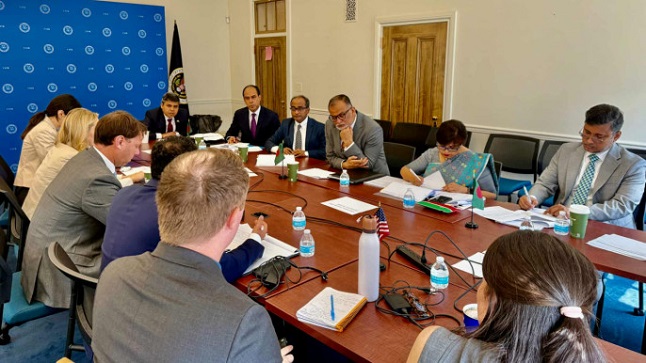During a meeting with the Dhaka Reporters’ Unity (DRU) Executive Committee, Bangladesh Garment Manufacturers and Exporters Association (BGMEA) President Mahmud Hasan Khan (Babu) revealed that the United States had proposed a 40 per cent local value addition threshold for Bangladeshi exports as part of ongoing trade negotiations.
The Bangladeshi side, however, is advocating for a relaxation of this requirement, citing the constraints posed by the ‘Rules of Origin’ and the operational challenges faced by the local apparel industry.
The discussion was held Saturday at the BGMEA office in Uttara, where DRU President Abu Saleh Akon and General Secretary Mynul Hasan Sohel were also present.
Bangladesh Knitwear Manufacturers and Exporters Association (BKMEA) President Mohammad Hatem told The Financial Express that the Bangladeshi delegation had also pushed for duty-free market access for apparel made from US cotton. The move, he explained, was aimed at increasing US cotton imports and narrowing the bilateral trade gap.
Read More: CCI Highlights Innovation and Sustainability in U.S. Cotton at Guangzhou Summit
Referring to a recent phone conversation with Commerce Adviser Sk Bashir Uddin—held while the adviser was in a meeting with representatives from the United States Trade Representative (USTR)—the BGMEA President said the adviser had inquired whether Bangladeshi businesses would still be able to operate profitably if a 40 per cent local value addition requirement was imposed.
Khan noted that the 40 per cent threshold had not been finalized, and several other instruments were also being discussed. He stressed that business leaders should be involved in such critical negotiations, as the outcomes would shape the future of the industry.
He expressed concern over how one government representative had, according to him, delayed progress by failing to negotiate effectively for two months before being replaced. He questioned how the government could justify excluding the industry’s largest stakeholder from such a vital process.
Khan also criticized the government for citing a Non-Disclosure Agreement (NDA) as a reason for limited transparency. He mentioned that the apparel industry had raised this concern during a meeting two days earlier. He questioned the rationale behind imposing a 2% Advance Income Tax (AIT) on cotton imports—a major US export—while simultaneously negotiating for reduced tariffs from the United States, suggesting that such actions sent a contradictory message.
BKMEA President Hatem described the recent trade discussions as productive but acknowledged that some matters would need further deliberation at the ministerial level. He warned that if the 40 per cent value addition requirement were enforced, Bangladesh’s woven garment exports to the US market would face serious challenges. However, he noted that knitwear and denim sectors were unlikely to be affected.
The statements by both BGMEA and BKMEA reflect rising concern within Bangladesh’s apparel sector over the outcome of these negotiations and their potential long-term implications on trade with the United States.






